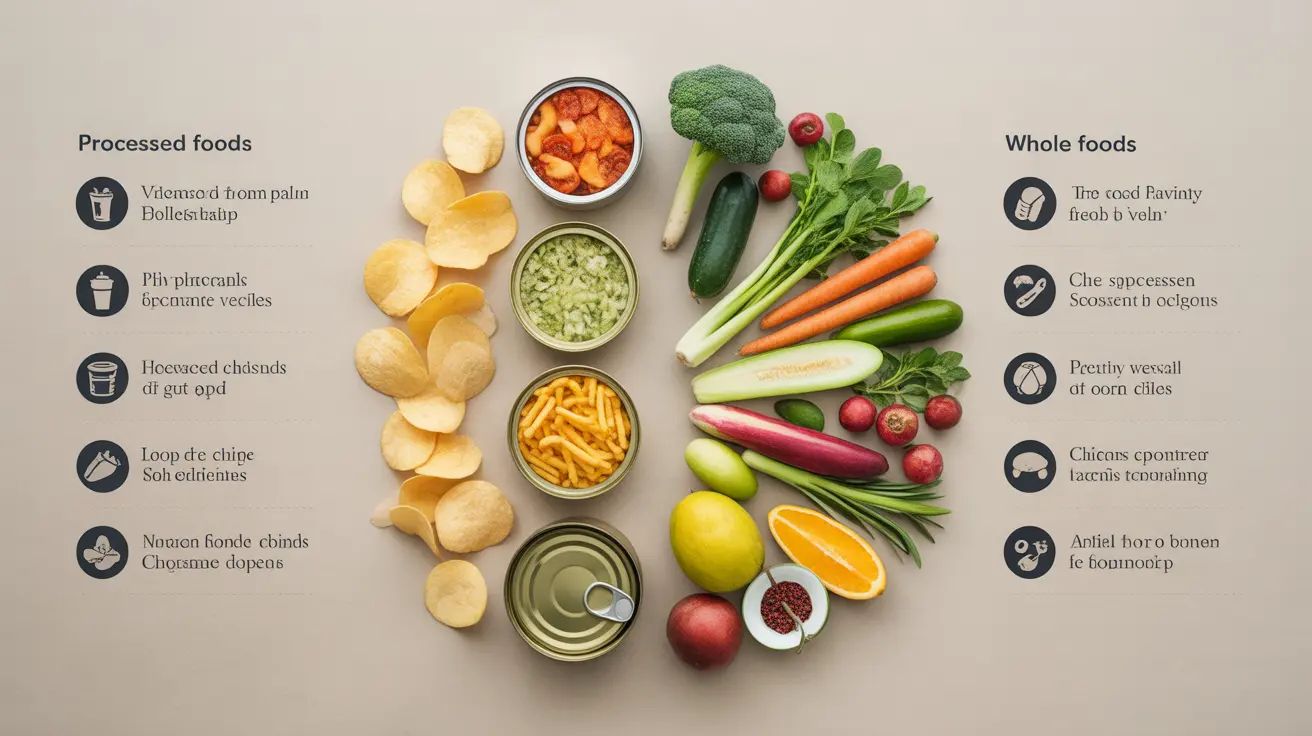Many people wonder about the relationship between sodium intake and weight gain. While sodium is an essential mineral that our bodies need for various functions, concerns about its potential impact on body weight are common. Understanding how sodium affects your body can help you make informed decisions about your diet and weight management goals.
This article explores the complex relationship between sodium consumption and weight, distinguishing between temporary water weight and actual fat gain, and providing practical insights for maintaining a healthy balance.
How Sodium Affects Your Body Weight
When you consume sodium, your body works to maintain a careful balance of fluids. This process can lead to temporary changes in your weight, but it's important to understand that these fluctuations are primarily due to water retention rather than fat accumulation.
The Science Behind Water Retention
Your body maintains a specific sodium-to-water ratio to ensure proper cellular function. When you consume excess sodium, your body holds onto extra water to maintain this balance. This mechanism can cause temporary weight gain of several pounds, depending on the amount of sodium consumed and your body's individual response.
The Link Between Sodium and Processed Foods
High-sodium foods, particularly processed items, often contribute to weight gain through multiple mechanisms beyond just water retention. Understanding these connections can help explain why excessive sodium intake might indirectly influence your body weight.
Hidden Calories in High-Sodium Foods
Most processed foods that are high in sodium also tend to be:
- High in calories
- Rich in refined carbohydrates
- Loaded with unhealthy fats
- Low in beneficial nutrients
This combination of factors, rather than sodium alone, often contributes to weight gain over time.
Impact on Appetite and Eating Behavior
Research suggests that high sodium intake might influence eating behaviors in several ways. Salty foods can trigger increased appetite and thirst, potentially leading to higher calorie consumption. Additionally, sodium can enhance the palatability of foods, making them more appealing and easier to overeat.
Managing Sodium-Related Weight Fluctuations
If you're concerned about sodium-related weight changes, consider these effective strategies:
- Drink plenty of water to help flush excess sodium
- Choose whole, unprocessed foods
- Read nutrition labels carefully
- Cook meals at home to control sodium content
- Include potassium-rich foods in your diet
Frequently Asked Questions
Does eating too much sodium cause permanent fat gain or just temporary weight gain? Excess sodium primarily causes temporary weight gain through water retention. While it doesn't directly cause fat gain, high-sodium diets often correlate with consuming calorie-dense processed foods that can lead to fat accumulation over time.
How does sodium intake lead to water retention and bloating? When you consume excess sodium, your body holds onto extra water to maintain proper sodium concentration in your blood. This mechanism causes temporary water retention and bloating until your body can restore its natural balance.
Can high sodium foods increase appetite and cause overeating? Yes, high-sodium foods can stimulate appetite and thirst, potentially leading to increased calorie consumption. Salty foods are often more palatable, which may encourage overeating.
Why do people who eat a lot of salty processed foods tend to have higher body weight? People who consume many processed foods typically have higher body weights because these foods are usually high in calories, refined carbohydrates, and unhealthy fats, not just sodium. The combination of these factors contributes to weight gain.
How can I reduce water weight caused by eating salty meals? To reduce water weight from high-sodium meals, increase your water intake, reduce sodium consumption, exercise regularly to promote sweating, and include potassium-rich foods in your diet. These strategies help restore your body's natural fluid balance.




